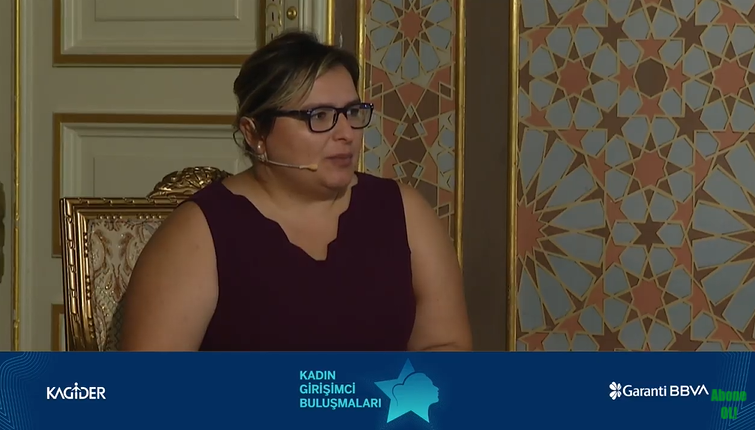The “Women Entrepreneur Meetings,” organized in collaboration with Garanti BBVA and KAGİDER, were held as a special online event.
The event featured past winners of Turkey’s Women Entrepreneur Competition and was hosted by Yekta Kopan, taking place across several different sessions. In the session titled “Women Entrepreneurs Making a Difference for a Sustainable World and Social Development,” participation included Tülin Akın, co-founder of TABİT Inc., Ayşegül Abacı, founder of Defne Pelet, Begüm Aytan, founder of GeneOn, and Melis Büyüksan, founder of Medlis. During the rotating session, participants were asked questions about their ventures.
The session was both highly informative and enjoyable. Moderator Yekta Kopan asked Tülin Akın questions about Tabit.
Kopan: What does Tabit do?
Akın: Tabit was founded in 2004. Since its establishment, we have been working to bring farmers in Turkey—who have limited access to information, communication, and technology—closer to digital knowledge and technology. We have extended this initiative beyond Turkey, benefiting millions of farmers globally, and we continue to do so. Our goal is to strengthen small family farming through technology and, in a sense, prepare them for change and transformation. In 2004, we launched Turkey’s first agricultural marketing site, tarimsalpazarlama.com, aiming to bring agricultural marketing into the digital space. Over time, we delivered all kinds of agricultural information and content to farmers’ phones via SMS. In the last five years, we established the Vodafone Smart Village in Koçarlı-Kasaplar, Aydın, where we conduct field applications. We serve as role models for both domestic and international agricultural stakeholders. Currently, we are working on a project in Algeria, and we are also providing consultancy and support for three Smart Village projects to be established in Azerbaijan.
Kopan: Awareness about Smart Agriculture is not yet global. Have you been able to raise awareness, especially regarding women entrepreneurship, through these efforts? How are women approaching it—are they participating?
Akın: We do not distinguish between men and women in the sector, but we observe that women are more willing and engaged in using technology and integrating it into their work. Women, particularly in small family farms, often work very hard, and if a technology makes their lives easier, they want to use it. We also emphasize collaborations in this area.
We prioritize technology in agriculture because we want to protect our future—for example, water usage. If we look at water consumption statistics, 70% of the water we use comes from agricultural irrigation, which is a very high rate. This issue is being discussed worldwide, not just in Turkey. The global climate crisis and related food shortages are affecting everyone. Seasonal production is increasingly challenging due to these conditions, and farmers worldwide are gradually leaving agriculture. If we apply the correct agricultural techniques, it will provide enormous benefits—not just producing, but producing correctly.
Kopan: Do you have a recommendation regarding this?
Akın: Farming is like an open-air factory—it has no walls and no protection. If proper and healthy production steps are not followed, it can lead to much larger problems. We all consume the results, including babies. It directly affects our lives. Therefore, we must approach agricultural production technically. Agriculture should not be undertaken just because someone is tired of city life and wants to farm. To farm, you need to understand village and rural life. It should not be seen as a romantic endeavor. For instance, we provide training in this area. Many participants leave the program after realizing, “This work is not for me.” Farming is not easy; it requires knowledge, awareness, and determination.

